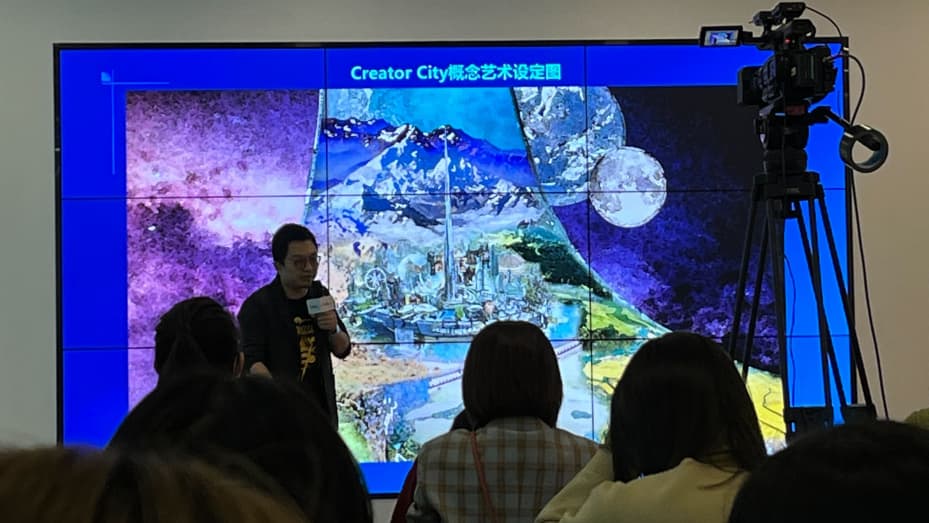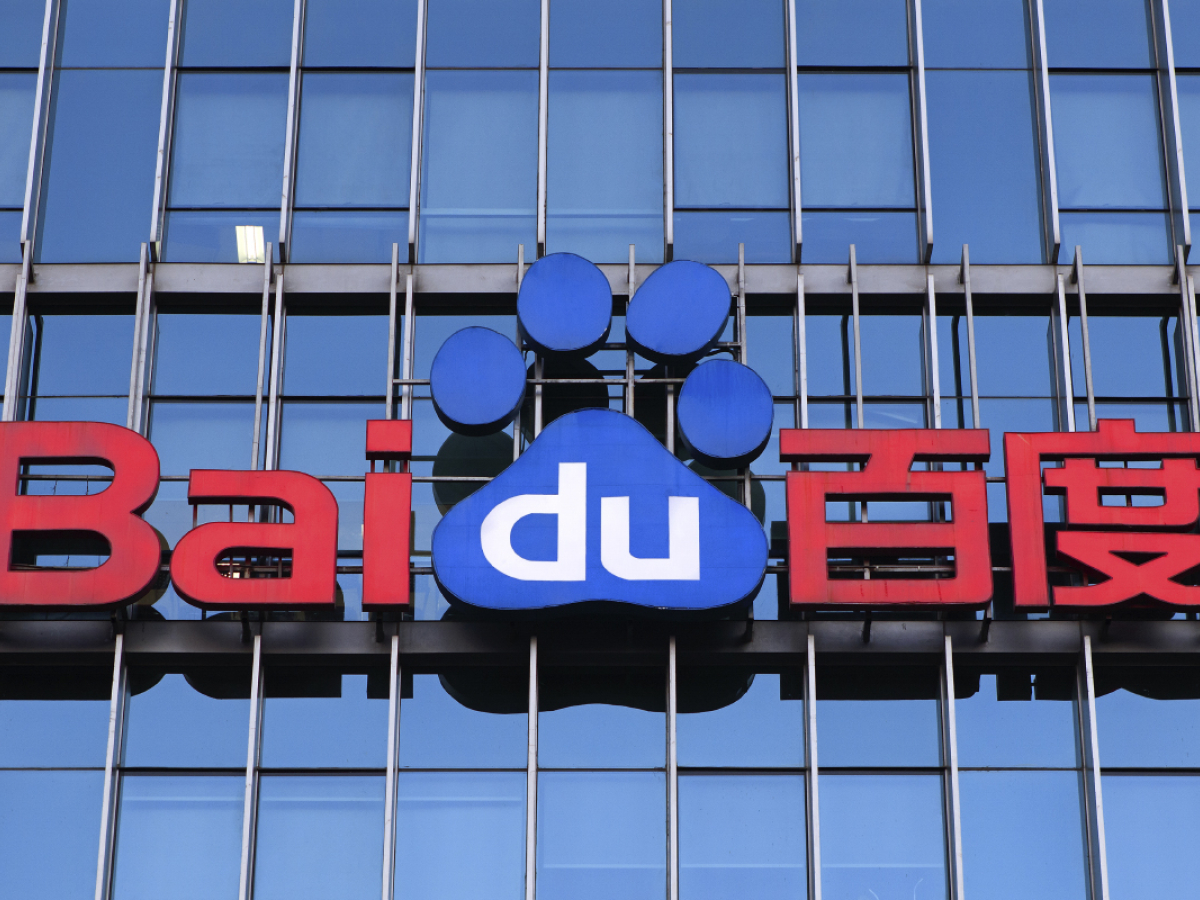While metaverse hype has swept the world this year, one of China’s tech giants in the game has revealed a version of the virtual ecosystem that’s underwhelming so far.
The metaverse can be loosely defined as the next generation of the internet — a virtual world in which humans interact through three-dimensional avatars. Social network giant Facebook jumped into the trend in October, changing its name to Meta and announcing plans for $10 billion in related investments in the next year.
China is similarly abuzz with metaverse headlines. Beijing-based Baidu plans to hold its annual developers’ event Monday in the virtual world of its metaverse app, XiRang. The company claims it will be China’s first metaverse conference.
However, at a preview event Tuesday, the executive in charge of XiRang downplayed expectations by noting how many aspects weren’t yet up to par.
Development of the app began last December, but it is still “negative six” years to full launch, Ma Jie, a vice president at Baidu, told reporters in Mandarin. In response to questions such as one asking for details on that timeline, Ma struck an apologetic tone: “That’s a very good question, but I may not have a very good answer.”

Ma Jie, a vice president at Baidu, shares the company’s metaverse plans at a media event in Beijing on Dec. 21, 2021.Evelyn Cheng | CNBC
Baidu’s app, as it exists now, can host 100,000 virtual attendees for Monday’s conference, Ma said, showing reporters a graphic rendering of the virtual stadium.
He said Baidu aims to build an open-source platform for metaverse developers — an infrastructure for a virtual world.
Monday’s event marks the opening of XiRang to developers, primarily in China for now.
“The metaverse, while a buzzword in the global tech and investment community, is still very much in its infancy,” Brian Tycangco, analyst at Stansberry Research, said in email. “A lot of people don’t even fully understand what the word means today or will mean in the next 3 to 5 years.”
Baidu’s timeline reflects the company’s understanding of the metaverse, its conservative approach in managing expectations and China’s regulatory environment, he said. “Baidu is clearly trying to move ahead to ‘own’ the metaverse in its home market while adhering to Beijing’s new policies aimed at preventing monopolistic situations, hence the open platform.”
The Chinese government has cracked down on alleged monopolistic practices by China’s internet tech giants with fines and new regulations in the last 18 months. Beijing also enacted a new data privacy law this year. Analysts say policymakers are trying to address income inequality issues, while supporting innovation-driven growth.
Baidu said in a statement to CNBC that openness is an inherent part of the company, and that by promoting open source development, applications can be adopted more widely and quickly.
The company was founded nearly 22 years ago as an internet search engine and has since shifted its focus to cloud computing, artificial intelligence, robotaxis and other technologies.
China’s internet is tightly controlled by the government, with blocks on foreign social media sites Facebook and Twitter. Google only operated its search engine in China briefly.
The global metaverse rush
Analysts disagree on how quickly China’s metaverse is developing is compared with that of the U.S.
Alibaba has a webpage promoting its metaverse cloud offerings. In November, Tencent President Martin Lau said in an earnings call that he expects the Chinese government will support the development of metaverse technologies, with regulations specific to the China market.
Read full story on CNBC News


